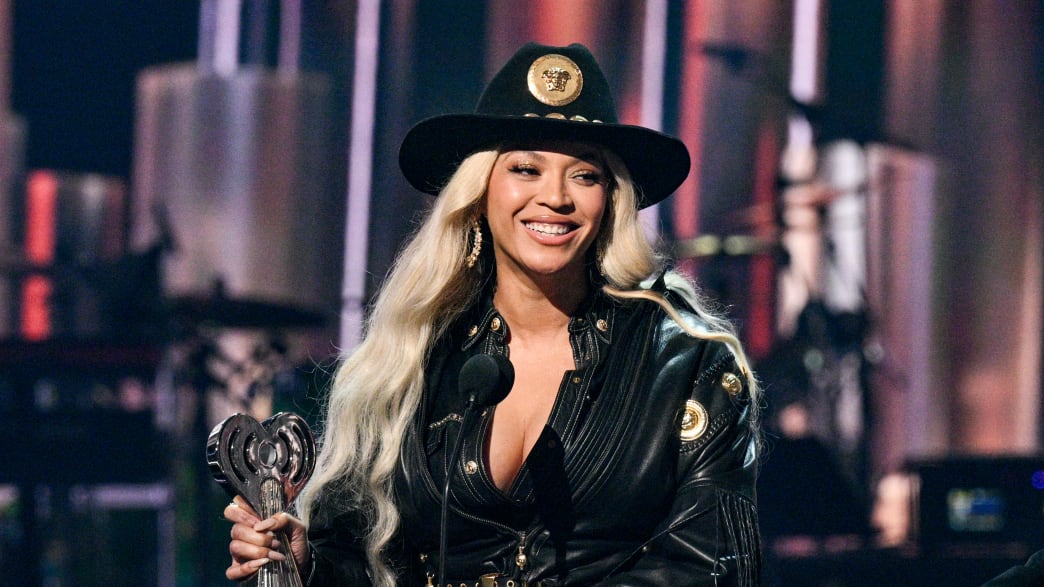Queen Beyoncé proves she can succeed in any genre with her new album “Cowboy Carter”

In the vast realm of musical prodigies, Beyoncé is one of the most notable. Not only for being an American singer, but also a songwriter, actress and businesswoman. Dubbed as “Queen Bey” and a prominent cultural figure of the 21st century, she has been recognized for her artistry and performances, with Rolling Stone naming her one of the greatest vocalists of all time. Beyoncé rose to fame in the ’90’s for her unique take on R&B in the group Destiny’s Child, and from that group, she became one of the most prominent independent artists of all time — with eight studio albums globally ranked.
Beyoncé’s versatile music often incorporates elements of contemporary R&B with catchy melodies, powerful vocals and detailed cryptic lyrics. Her previous album,
“Renaissance,” is known for its eclectic yet cohesive sound and ultimately became the best-rated album of 2022 by the New York Times and the Los Angeles Times. On March 29, 2024, Beyoncé released her first country/western inspired album “Cowboy Carter.” Since this release, the album’s genre experimentation, expansive scope and eclectic references has received recognition on a global scale for its revolutionary musical fusion.
At first glance, the scope and scale of “Cowboy Carter” can be overwhelming. With a 27-track runtime that summates to a whopping 78 minutes, there’s something about its construction that pleads with you to consume it as a whole. Though Beyoncé intertwines her R&B groove through “Cowboy Carter,” she now seems to focus on American folk music and the golden era of country, with cosigns from legends who forged their legacies in the ’60s and ’70s such as Dolly Parton, Willie Nelson and Linda Martell.
The album opens with “AMERIICAN REQUIEM,” a slow-burn, country-rock opera -– that references the CMA controversy directly through lines like “Used to say I spoke too country / And the rejection came, said I wasn’t country ’nough,” before making broader statements on who gets to call themselves a “true American.” Beyoncé explores the hypocrisy of a country built on freedom by enslaved people before planting her own flag in it, kicking off the album in an extremely melancholic way.

Taking a systematic turn, this album features her currently most popular song named “Texas Hold ’Em,” which initially set the tone for “Cowboy Carter” when it was released earlier this year. This upbeat frenzy of a song with its idiosyncratic chords and melodies that are just too synthetically groovy not to dance to. This song is truly a Texas country triumph and exudes energy that true pop would hold.
In Beyoncé’s take on “Jolene” by Dolly Parton, she loses some of the original’s desperation by morphing the piece into more of a warning than a pleading for mercy. She alters most lines outside of the chorus like “Jolene, I know I’m a queen, Jolene / I’m still a Creole banjee bitch from Louisiane.” Parton represented the kind of woman who was allowed to be vulnerable, but Beyoncé’s take counteracts the precedent set.
Meanwhile, Beyoncé and pop-country maven Miley Cyrus trade odes to their ride or dies as if sharing the same mic in their song “II MOST WANTED.” They bring us on a soft electronic wave during the duration of the song while these two artists blend beautifully on the track.
She seems to stray away from the theme in majority of the songs of the album that are almost like an interlude with both “DESERT EAGLE” and “RIIVERDANCE.” These are unexpected slap-bass strip-club anthems that have an undertone of country folk which are extremely explicit. These songs showcase a finger-picked bluegrass guitar alongside a house piano and four-on-the-floor percussion. These songs both have layered textual references, interludes and copious gestures that gravitate towards the generality of southern racism and discrimination.
She may be bringing a small posse of lesser-known artists with her, but as she noted, this is more about “challenging” herself, not an altruistic endeavor. Beyoncé explains the black roots of country music in such a modern and pioneering attitude. Beyoncé’s deep-toned voice exudes a southern aura, which complements the cultural tone for this album. Beyoncé’s persona has become American iconography, and her magnitude tends to cast a shadow over everything before her, no matter the medium nor genre. Just as it uses country music as a backdrop to explore other genres, it creates this unorthodox blend that radiates a new fusion that many new artists will most likely try to replicate.
“Cowboy Carter” is a journey and a reflection of the past and injustices as reveals a bigger picture. Beyoncé adds American roots into the music, but through various moods, shades and emotions that blend as a celebration. As she mentioned herself when announcing the album, “This ain’t a country album. This is a ‘Beyoncé’ album.”





